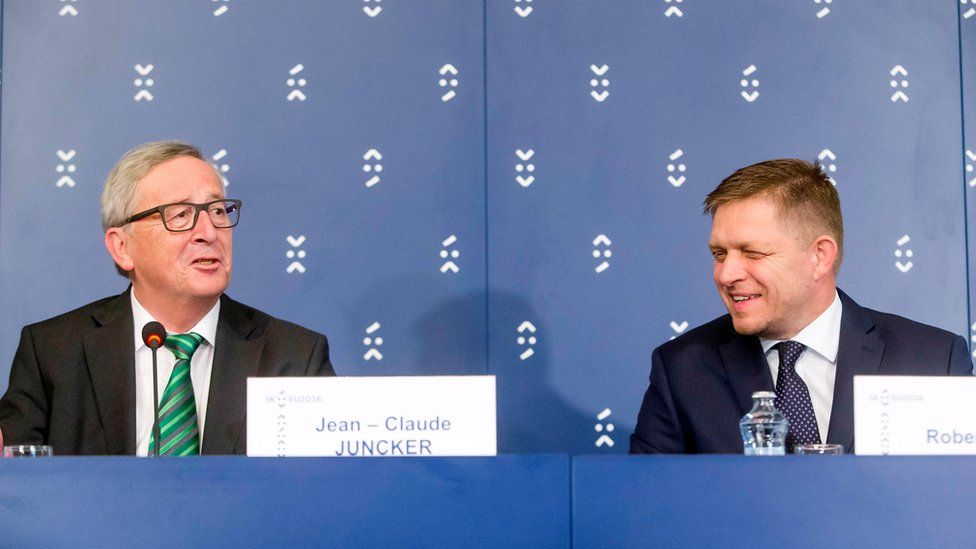Slovakia admits Brexit will dominate six-month EU presidency
- Published

Fallout from Brexit and questions over migration into the EU will dominate Slovakia's six-month presidency of the EU, its prime minister has said.
Robert Fico said Slovakia had its own agenda for its presidency, but admitted the UK's vote to leave the EU would exert "considerable influence".
Slovakia assumes the EU's rotating presidency for the first time later on Friday.
But it comes as the bloc faces intense pressure over the UK's referendum.
Slovakia's programme for the six months was adopted only yesterday, Mr Fico said, owing to a desire to take into account the fallout from Brexit.
Mr Fico made the comments alongside European Commission president Jean-Claude Juncker at a press conference.
Both Mr Fico and Mr Juncker emphasised that there could be no negotiation over the UK's departure until formal notification is received by the EU.
The UK has so far failed to issue Article 50, which formally notifies the EU of its intention to leave, and there is uncertainty over when it will be invoked.
'Exceptional event'
Mr Fico said the remaining 27 member states were "clear that we know what we want".
He said: "We know how to proceed and these principles were very clear at the meeting of the EU countries.
"These are turbulent times, we have to ensure next six months are a success for Slovakia. This is an exceptional event."
What is the rotating EU presidency?
- The 28 member states take it in turns to manage EU affairs for six months
- It involves chairing the bloc's ministerial meetings in the Council
- It is a less powerful role than previously, as the EU has a permanent European Council president and a foreign policy chief
- The country holding the presidency sends many civil servants to Brussels
- The holder can pursue some national interests when EU policy is decided, in areas like energy, finance and security
Mr Fico acknowledged that migration was a "divisive" issue among EU member states, but said Slovakia intended to create "space for discussion" of the problem.
He has challenged the EU during the recent migrant crisis, and refused to be part of a quota plan for housing asylum seekers around member states.
He also said the EU need to better communicate its own ambitions.
"Let me be clear, we don't want radical steps, but we can't simply say business as usual," he said.
"Above all we need to concentrate on better communication, how we can sell the European project to our citizens."
Mr Juncker said the Commission was looking into the "deeper reasons for the vote of the British citizens".
He said the many discussions he has held before and after the referendum had told him there was one major issue - freedom of movement.
But he stressed that there would be no change to that principle and no access to the single market without it.
- Published30 June 2016
- Published29 June 2016
- Published30 December 2020
- Published8 April